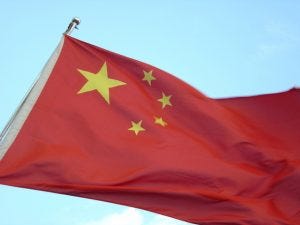The European Medicines Agency (EMA) has accepted to review a version of Roche’s cancer drug Herceptin (trastuzumab) developed by Chinese biotech Henlius.
The European agency has officially accepted to review the Marketing Authorization Application (MAA) of Shanghai, Henlius’ trastuzumab molecule HLX02, making it he first biosimilar developed and made in China to be up for review.
Scott Liu, co-founder and CEO at Henlius, said the review “shows that our clinical, medical, regulatory affairs and quality system capabilities have been internationally recognized,” and that his firm will work closely with the agency to bring HLX02 to market.

If the Phase III biosimilar receives approval, it will be marketed throughout the European Union (EU) by Accord Healthcare Limited, following a deal struck between the two firms signed in June 2018.
Helnius already has success in China with a biosimilar version of Roche’s Rituxan (rituximab) already on the market.
The firm did not respond to questions when contacted by this publication.
Helnius’ manufacturing
Helnius has two production facilities. The first at the Shanghai Caohejing Hi-Technology Park, established in 2015, consists of single-use bioreactors and has passed inspections conducted by the EU and China’s National Medical Products Administration (NMPA), the firm says.
“The plant was built in accordance with EU requirements, and was based on the design of the 2,000 L QBD commercial production line, using the most advanced disposable technology to effectively avoid cross-contamination, no cleaning validation, and reduce the amount of operating costs while improved work efficiency,” according to Helnius.
“The formulation adopts the Bosch linkage line and republican lyophilizer together with automatic access to materials, thus the production line is stable and reliable. Meanwhile, the filling line covers all current specifications of monoclonal antibody products to meet different needs of installed capacity.”
The second Songjiang Facility, also in Shanghai, is in the early planning and design stage but will manufacture over 20 products simultaneously when fully operated.





